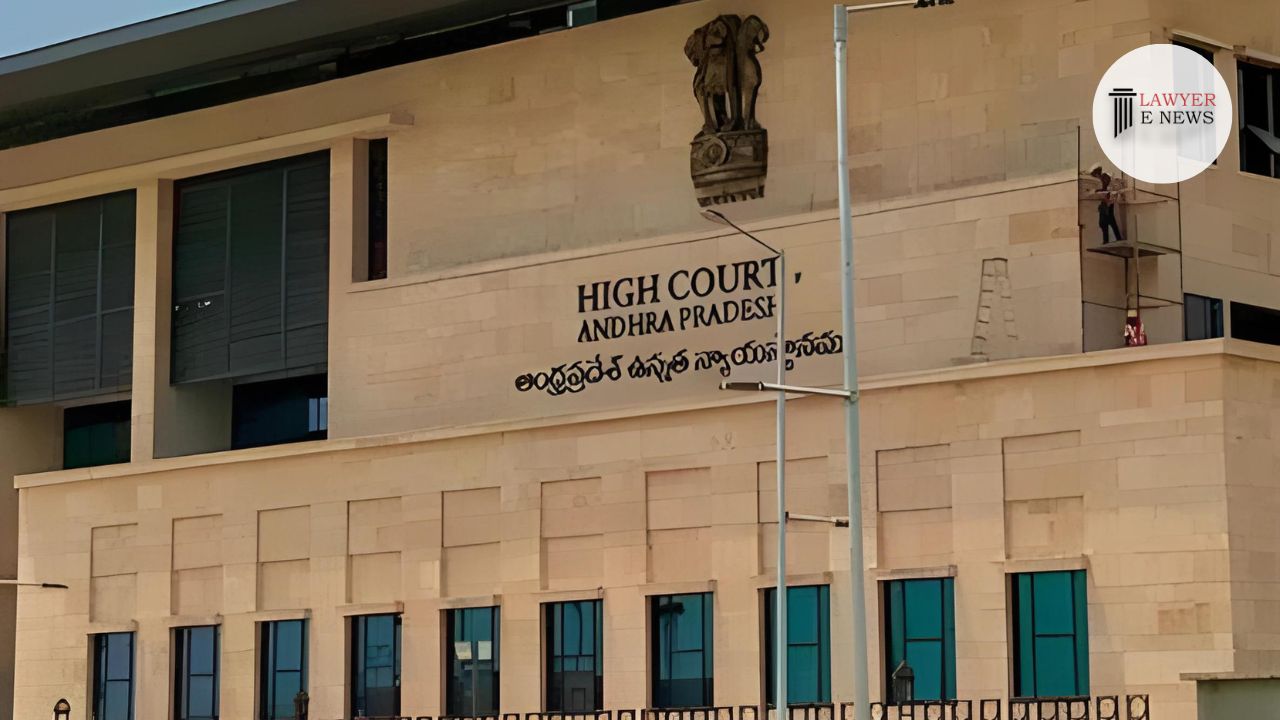-
by Admin
15 February 2026 5:35 AM



Plaintiff's claim over ancestral properties, including disputed sales of joint family land, dismissed by High Court. The Andhra Pradesh High Court, in a judgment delivered by Justice V. Gopala Krishna Rao, has dismissed the appeal in a long-standing partition dispute. The Court upheld the trial court’s 1996 decree, ruling that the properties in question were joint family assets and rejecting the appellant's claims of self-acquisition. Additionally, the Court denied the appellant’s request to admit new evidence due to an unexplained delay of 24 years.
The appellant, Dr. Korrapati Venkata Poornachandra Rao, filed a suit in 1984 for partition of joint family property, seeking an equal division between himself, his son Midhun (the first defendant), and his second son, K. Venkata Sri Krishna (second defendant). The dispute centered around the division of ancestral properties, as well as certain properties sold by the appellant that he claimed were for legal necessities. The trial court had decreed the partition, giving the first defendant a share in properties the appellant claimed to have sold legally or purchased personally.
The appellant challenged this decree, arguing that certain properties—specifically those covered under Ex.A6, Ex.A7, Ex.A8, and Ex.A9—were either sold for legal necessities or were his self-acquisitions and should not have been included in the partition.
Sale of Joint Family Land (Ex.A6 & Ex.A7): The Court ruled that the appellant could not justify the sales of land mentioned in Ex.A6 and Ex.A7 as being for legal necessity. The properties were sold in 1983, following the appellant’s divorce, under the claim that the proceeds were used to settle maintenance payments for his former wife and the first defendant. However, the Court found that the sale occurred after the maintenance had already been paid, and therefore, the plaintiff's assertion that the sale was necessary for this purpose was unsupported by evidence. Moreover, by the time of the sale, custody of the first defendant had been transferred to his mother, making the appellant incompetent to act as the first defendant’s guardian for the sale of joint family property.
“The plaintiff is not competent to execute the sale deeds representing the minor first defendant since he was not in custody of the minor at the time of the transaction”.
Regarding the house property under Ex.A8, purchased in the appellant's name while he was a minor, the Court held that there was no evidence to support the appellant’s claim that it was his self-acquired property. Instead, the property was acquired with joint family funds, and thus, the first defendant was entitled to a share.
Similarly, the Court found that the property under Ex.A9, acquired from the appellant’s father, was also purchased with ancestral funds. The appellant's claims of purchasing it through his income as a doctor were dismissed, as he had only started his medical practice after the purchase.
“The plaintiff’s contention that the Ex.A9 property was self-acquired is not supported by evidence, as he did not have the financial capacity at the time of purchase to justify such a claim”.
Rejection of Additional Evidence: The appellant sought to introduce new evidence 24 years after the trial court's decree. However, the Court dismissed this application, noting that the appellant had failed to justify the significant delay in producing the evidence. The documents, which related to financial transactions in 1982 and 1983, were also deemed irrelevant to the matters at hand.
Under Order XLI Rule 27 of the Code of Civil Procedure, additional evidence can only be admitted in exceptional circumstances. The Court held that no such circumstances were present in this case, and the appellant's failure to explain the delay further weakened his case.
The High Court's judgment reinforces the legal principles governing joint family property in Hindu law. The ruling confirms that unless supported by clear evidence, claims of self-acquisition cannot override the presumption of ancestral ownership in cases of joint family property. Additionally, the decision sends a strong message regarding the timely presentation of evidence in litigation. By upholding the trial court’s decree, the Court ensured the equitable distribution of ancestral property and set a precedent for future partition disputes involving long-delayed claims.
Date of Decision: September 5, 2024.
Dr. Korrapati Venkata Poornachandra Rao vs. K. Midhun & Another
